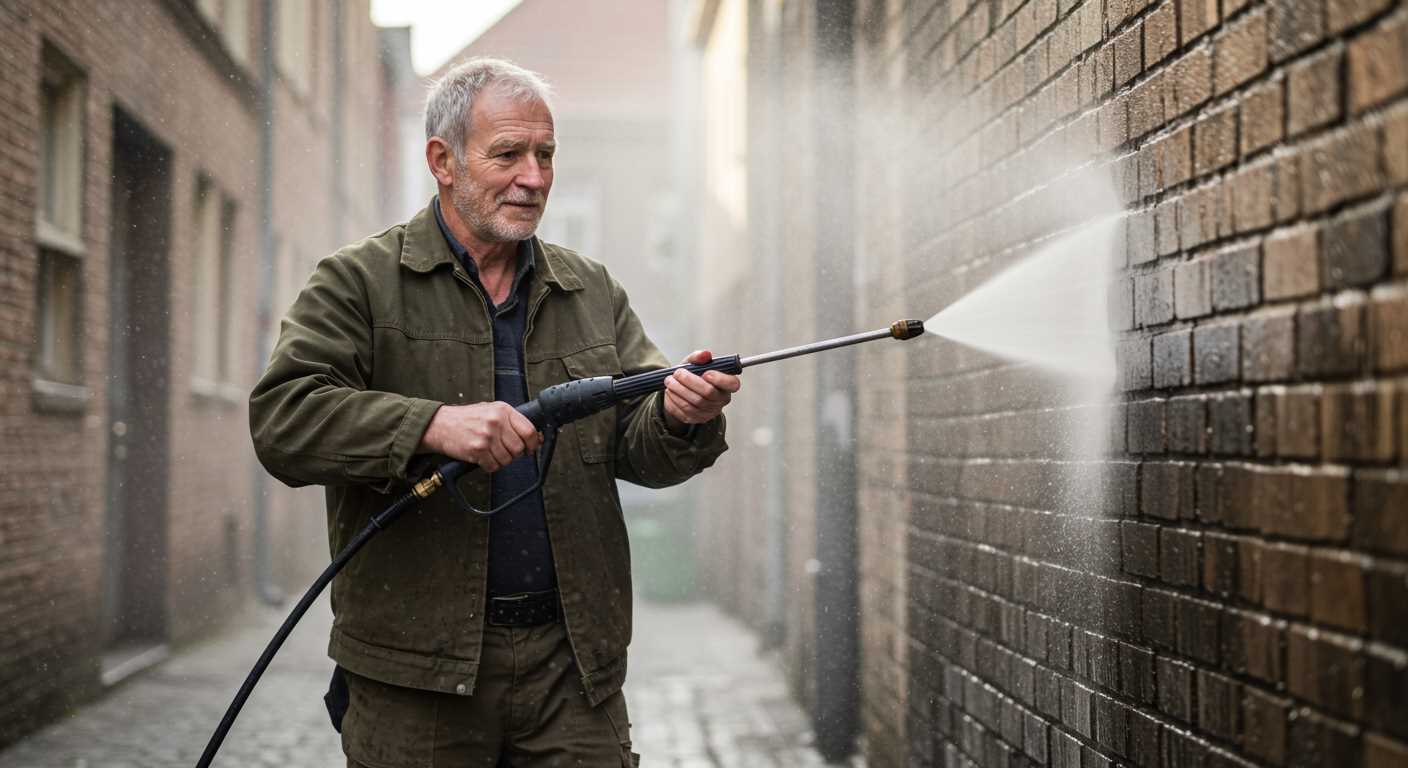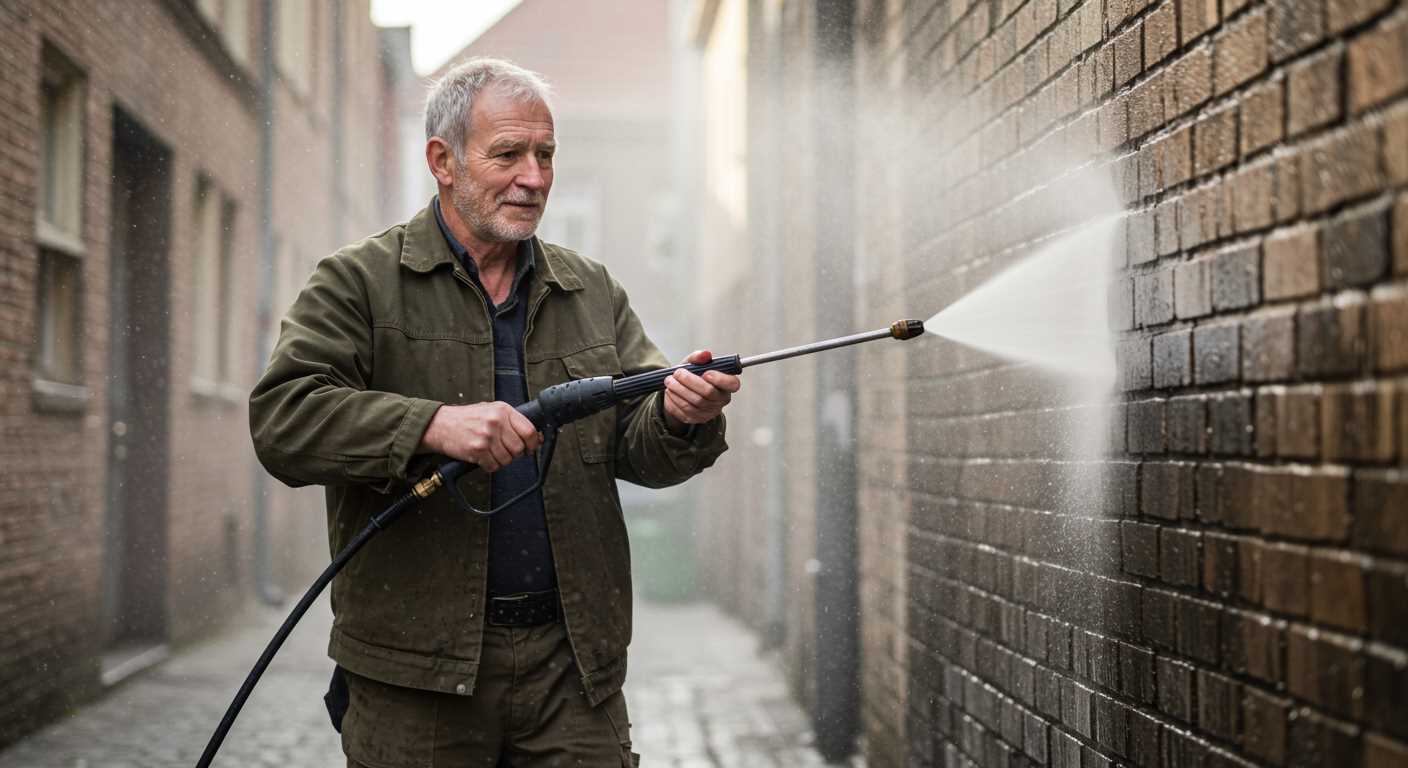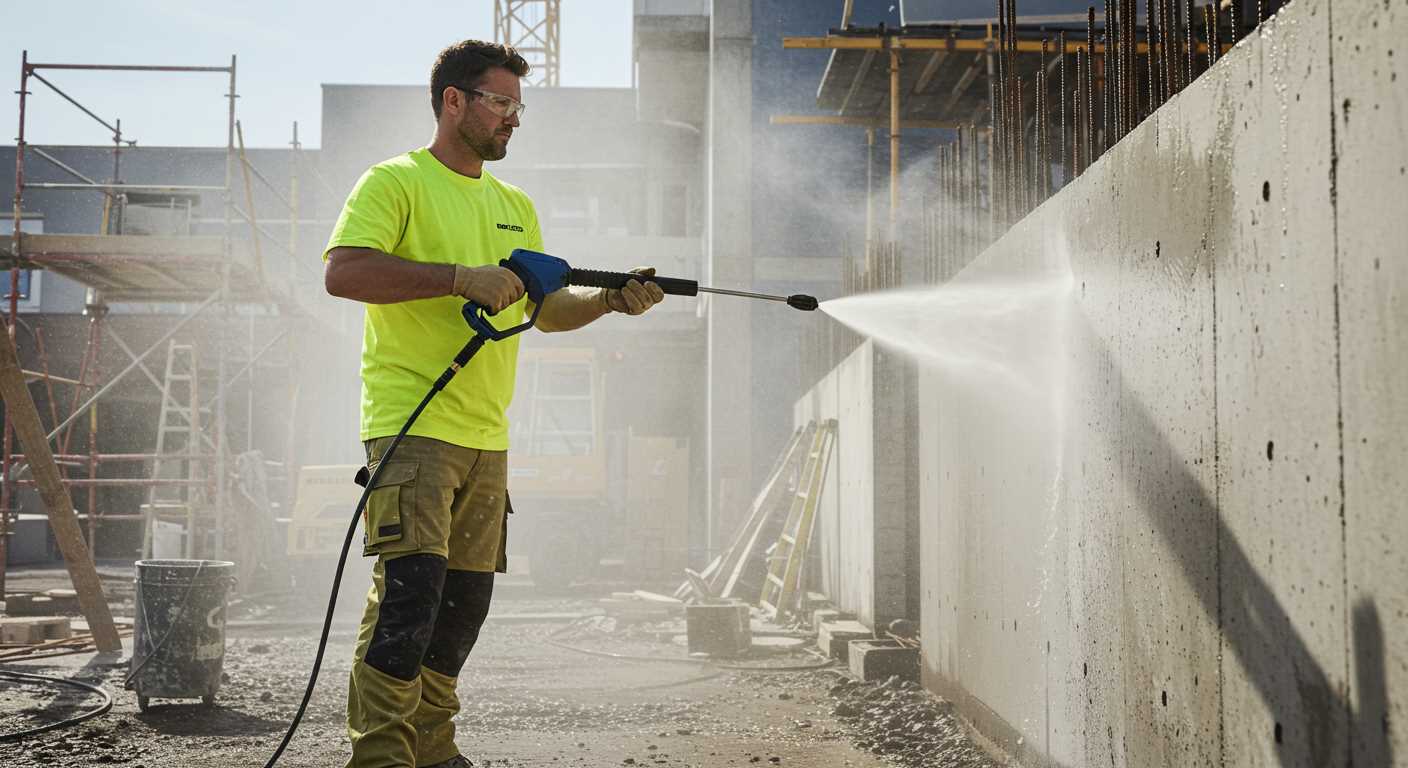




When it comes to tackling outdoor cleaning tasks, having the right tools can make all the difference. In this article, I aim to guide you through the world of entry-level pressure washers, highlighting the best options available on the market today. Whether you’re a homeowner looking to spruce up your patio, driveway, or garden furniture, or a newbie just starting your journey into the realm of power washing, this guide is tailored for you.
Throughout this article, I’ll provide an overview of various models that offer excellent performance without breaking the bank. You’ll find detailed comparisons of features, specifications, and user reviews to help you make an informed decision. Moreover, I will discuss the essential factors to consider when choosing a pressure washer, ensuring that you select the one that suits your specific needs.
By the end of this guide, you will have a clear understanding of the top entry-level pressure washers available, along with practical tips on how to maximise their use. This article is not only a resource for those ready to make a purchase but also for anyone keen to learn about the benefits of pressure washing and how it can transform your cleaning routine.
Understanding Pressure Washer Specifications
When considering a pressure washer, understanding its specifications is crucial to making an informed decision. These specifications can often seem overwhelming, but they provide valuable insights into the machine’s capabilities and limitations. Key factors such as pressure, flow rate, and power source play a significant role in determining the suitability of a pressure washer for specific tasks.
Pressure washers are generally rated by their pressure output, measured in pounds per square inch (PSI), and their flow rate, measured in gallons per minute (GPM). The combination of these two figures gives a clear indication of the cleaning power of the machine. A higher PSI means greater force, while a higher GPM indicates more water flow, which can help in rinsing away dirt and grime more effectively.
Key Specifications to Consider
- Pressure (PSI): Indicates the force with which water is expelled. Ideal for removing tough stains.
- Flow Rate (GPM): Reflects how much water is used. Higher flow rates can lead to quicker cleaning.
- Power Source: Can be electric or gas. Electric models are generally quieter and easier to maintain, while gas models offer more power.
- Nozzle Types: Different nozzles provide varying spray patterns, allowing for versatility in cleaning tasks.
- Weight and Portability: Consider the weight and design for ease of movement during use.
Understanding these specifications will help you choose a pressure washer that meets your cleaning needs effectively. Whether for home maintenance or more demanding projects, knowing what to look for ensures that you select a model that aligns with your requirements.
Key Features to Look for in an Entry Level Model
When considering an entry level pressure washer, it’s essential to focus on certain features that ensure efficiency and ease of use. These features can significantly impact your cleaning experience, making it more effective and enjoyable. Understanding what to look for will help you make an informed decision that fits your needs.
One of the primary aspects to consider is the pressure output, typically measured in PSI (pounds per square inch). This measurement indicates the force of the water spray and can affect how well the pressure washer cleans different surfaces. Additionally, the flow rate, measured in GPM (gallons per minute), is equally important. A higher flow rate can help rinse away dirt and debris more effectively.
Key Features
- Portability: Look for a lightweight design with wheels for easy manoeuvrability.
- Ease of Use: Features such as an adjustable spray nozzle can enhance versatility for various cleaning tasks.
- Storage: Consider models with onboard storage for hoses and accessories to keep everything organised.
- Durability: Quality materials in the construction can ensure longevity, even in entry level models.
- Safety Features: Automatic shut-off systems can prevent accidents and prolong the life of the unit.
By prioritising these features, you can select an entry level pressure washer that meets your cleaning requirements while being user-friendly and efficient. Investing time in understanding these key aspects will lead to a more satisfying purchase and better results in your cleaning tasks.
Brands Offering Affordable Pressure Washers
When considering an entry-level pressure washer, it’s essential to look at brands that combine quality and affordability. Numerous manufacturers have established a reputation for producing reliable and efficient pressure washers that cater to first-time users and those on a budget. These brands focus on providing powerful cleaning solutions without overwhelming users with complex features.
Many well-known brands in the market offer a variety of models that are designed to meet different cleaning needs. They often provide excellent customer service and support, ensuring that buyers have a positive experience from purchase to usage. This is particularly important for newcomers who may have questions or require assistance with their new equipment.
Key Features to Consider
- Durability: Look for brands that use high-quality materials to withstand regular use.
- Ease of Use: Simple controls and lightweight designs can enhance user experience.
- Power Output: Ensure that the pressure washer has adequate PSI and GPM ratings for your cleaning tasks.
- Accessories: Check for included attachments and nozzles that can expand functionality.
Investing in a reputable brand can lead to a satisfying cleaning experience and long-term value. Many companies offer warranties, ensuring peace of mind for consumers. It’s advisable to read reviews and compare features before making a decision.
Comparative Analysis of Popular Entry Level Options
When it comes to selecting an entry-level pressure washer, consumers often find themselves overwhelmed by the variety of choices available on the market. Understanding the key features and specifications can greatly aid in making an informed decision, especially for those who are new to pressure washing. This analysis will focus on several popular options, highlighting their strengths and weaknesses.
In general, entry-level pressure washers are designed to be user-friendly, cost-effective, and efficient for light to moderate cleaning tasks. They typically offer a range of pressure ratings, power sources, and additional features that cater to different user needs. Evaluating these aspects can help potential buyers identify which model suits their requirements best.
Key Features Comparison
| Feature | Option A | Option B | Option C |
|---|---|---|---|
| Pressure Rating (PSI) | 1500 | 1600 | 1400 |
| Power Source | Electric | Electric | Gas |
| Weight | 25 lbs | 30 lbs | 35 lbs |
| Hose Length | 20 ft | 25 ft | 30 ft |
Performance: Each option delivers a varying performance level, which is crucial depending on the intended use. While some may excel in pressure output, others may offer greater versatility with additional attachments for different cleaning tasks.
Portability: Weight and design significantly affect portability. Lighter models tend to be easier to manoeuvre, making them ideal for users with limited storage space or those who require frequent transport.
Durability: Construction materials and overall design also play a crucial role in longevity. Models made from high-quality materials may prove to be a more economical choice in the long run, despite a higher initial investment.
Ultimately, the best choice will depend on individual needs, including the types of jobs anticipated, budget constraints, and personal preferences regarding portability and ease of use.
Essential Accessories for Enhanced Performance
Having a reliable entry-level pressure washer can significantly boost your cleaning efficiency, but equipping it with the right accessories can take its performance to the next level. These accessories not only enhance the versatility of your pressure washer but also ensure that you achieve the best possible results for various cleaning tasks.
From nozzle attachments to surface cleaners, the right tools can make a substantial difference in how effectively you tackle dirt, grime, and stains. Understanding the benefits of each accessory is key to maximising the capabilities of your pressure washer.
Key Accessories to Consider
- Nozzle Attachments: Different nozzles provide varying spray patterns, allowing you to adjust the pressure for specific tasks. A wider spray is ideal for gentle cleaning, while a narrow spray is perfect for tough stains.
- Surface Cleaners: These tools are designed to clean large flat surfaces efficiently. They help to reduce cleaning time and provide a uniform clean compared to using a standard nozzle.
- Extension Wands: If you need to reach high or distant areas, extension wands can help you access those spots without the need for ladders, improving safety and convenience.
- Detergent Tanks: Many pressure washers come with built-in detergent tanks. Using the right detergent can significantly enhance cleaning power, especially for tough jobs like removing grease or mould.
- Hoses: A quality hose that is both flexible and durable can improve your reach and manoeuvrability, making your cleaning tasks easier.
Investing in these essential accessories can not only enhance the performance of your pressure washer but also broaden its range of applications. Whether you’re cleaning your driveway, patio, or vehicle, the right tools will ensure that the job is done efficiently and effectively.
Maintenance Tips for Longevity and Efficiency
Regular maintenance of your pressure washer is essential to ensure its longevity and efficiency. By following a few simple guidelines, you can keep your machine in top condition and ready for use whenever you need it. Proper care not only enhances performance but also prevents costly repairs down the line.
One of the key aspects of maintenance is routine cleaning. After each use, it is important to remove any debris or dirt from the nozzle, wand, and housing. This will prevent clogs and ensure optimal water flow during future operations.
Essential Maintenance Practices
- Inspect the Hoses: Regularly check for cracks, leaks, or wear in the hoses. Replace them if any damage is found to avoid pressure loss.
- Change the Oil: If your pressure washer has a gas engine, change the oil according to the manufacturer’s recommendations to keep the engine running smoothly.
- Clean the Filters: Ensure that the water inlet filter is clean. A clogged filter can reduce water flow and impact performance.
In addition to these practices, it is advisable to store your pressure washer properly. Keep it in a dry, sheltered area to protect it from the elements. If you live in a region with freezing temperatures, consider winterising your machine to prevent damage from ice.
Following these maintenance tips will not only extend the life of your pressure washer but also improve its efficiency, making your cleaning tasks quicker and more effective.
Real User Reviews and Experiences with Budget Models
When it comes to choosing an entry-level pressure washer, real user reviews can provide invaluable insights. Many consumers have shared their experiences with various budget models, highlighting both the advantages and potential drawbacks of their purchases. Understanding these reviews can help prospective buyers make informed decisions and find a model that suits their needs.
Users often emphasize the importance of performance, ease of use, and durability in their reviews. While budget models may not offer the same level of power as high-end options, many users have found them to be perfectly adequate for light to medium tasks, such as cleaning patios, driveways, and garden furniture.
- Performance: Many users report satisfactory results when using budget pressure washers for everyday cleaning tasks.
- Portability: Lightweight models are often praised for their ease of transport and storage.
- Value for Money: Consumers frequently mention that these machines provide good value for the price, especially for occasional use.
- Durability Concerns: Some users have noted that budget models may not be as long-lasting as higher-end options, particularly under heavy use.
In conclusion, while there are limitations to budget pressure washers, many users have found them to be a practical choice for casual cleaning tasks. The key is to set realistic expectations and choose a model that aligns with your specific needs and usage frequency. Ultimately, the right pressure washer can make outdoor cleaning tasks much easier and more efficient.
Top 10 Best Entry Level Pressure Washer





Best Entry Level Pressure Washer
Features
| Part Number | 1.637-500.0 |
| Model | 1.637-500.0 |
| Color | Black, Yellow |
| Language | French |
Features
| Part Number | ePX3100v |
| Model | ePX3100v |
| Color | Black |
| Size | 2100 Max PSI |
Features
| Part Number | SQ-222-2 |
| Model | SQ-222 |
| Color | black |
Features
| Part Number | 20211 |
| Model | B08864LY6D |
| Warranty | One Year Manufacturer |
| Color | Pink Black |
| Size | One Size |
Video:
FAQ:
What features should I look for in an entry-level pressure washer?
When searching for an entry-level pressure washer, consider several key features. Firstly, the pressure rating, measured in PSI (pounds per square inch), is important; for basic home tasks, a washer with a PSI between 1300 and 2000 is usually sufficient. Secondly, check the GPM (gallons per minute) rating, as a higher GPM will indicate faster cleaning. It’s also crucial to consider the type of motor—electric models are quieter and easier to maintain, while gas models typically offer more power. Finally, look for features like adjustable nozzles, detergent tanks, and portability options such as wheels for ease of use.
Can I use a pressure washer for cleaning my car?
Yes, you can use a pressure washer to clean your car, but it’s important to do so carefully. Use a low-pressure nozzle to avoid damaging the paint and finish. It’s advisable to keep the nozzle at least two feet away from the car’s surface and to avoid concentrating the spray on any one spot for too long. Additionally, consider using a foam cannon attachment with car wash soap to create a thick foam that helps lift dirt and grime. Rinse thoroughly afterwards to ensure no soap residue remains.
Are electric pressure washers more suitable for home use than gas models?
Electric pressure washers are often more suitable for home use, especially for beginners. They are generally lighter, quieter, and easier to start compared to gas models, which can be more cumbersome and require regular maintenance. Electric models are ideal for tasks such as washing cars, patios, and outdoor furniture. However, if you need more power for heavy-duty jobs like cleaning large driveways or decks, a gas model may be more appropriate despite the added complexity of upkeep.
How do I maintain my pressure washer to ensure its longevity?
Maintaining your pressure washer is crucial for its longevity and performance. Start by regularly checking and cleaning the filter to prevent clogs. After each use, flush the system with clean water to remove any detergent or debris. If you have a gas model, change the oil as recommended in the manufacturer’s guidelines and check the spark plug. Store your pressure washer in a dry place and protect it from extreme temperatures. Additionally, inspect hoses and connections for wear and replace them if necessary to avoid leaks.
What is the best entry-level pressure washer on the market right now?
As of now, one of the best entry-level pressure washers is the Sun Joe SPX3000. It offers 2030 PSI and is equipped with a 1.76 GPM pump, making it powerful enough for most household tasks. Its dual detergent tanks allow for easy switching between cleaning solutions, and the lightweight design makes it easy to manoeuvre. Another popular option is the Greenworks GPW1501, which is slightly less powerful but still effective for light cleaning jobs. Always consider your specific needs and budget when choosing the right model for you.
What features should I look for in an entry-level pressure washer?
When choosing an entry-level pressure washer, consider the following features: Firstly, the pressure rating is important; typically, a range of 1300 to 1900 PSI (pounds per square inch) is suitable for light cleaning tasks like washing cars or patios. Secondly, the flow rate, measured in GPM (gallons per minute), indicates how much water the machine can use. A flow rate of around 1.2 to 1.6 GPM is generally adequate for basic cleaning. Additionally, look for adjustable nozzles that allow you to switch between different spray patterns for various tasks. Portability features, such as wheels and a lightweight design, make it easier to move the washer around. Lastly, consider warranty and customer service support, as these can provide peace of mind regarding the product’s reliability.
Are electric pressure washers suitable for home use compared to gas models?
Electric pressure washers are often more suitable for home use, particularly for those who are new to pressure washing. They are typically quieter, lighter, and easier to maintain than gas models. Electric models are ideal for small to medium cleaning tasks, such as washing vehicles, patios, and garden furniture. They generally do not require fuel, which makes them more convenient for occasional use. However, if you have heavier-duty tasks, such as cleaning large driveways or decks, a gas pressure washer might be more effective due to its higher pressure output. It really depends on your specific cleaning needs and how often you plan to use the washer.




.jpg)


